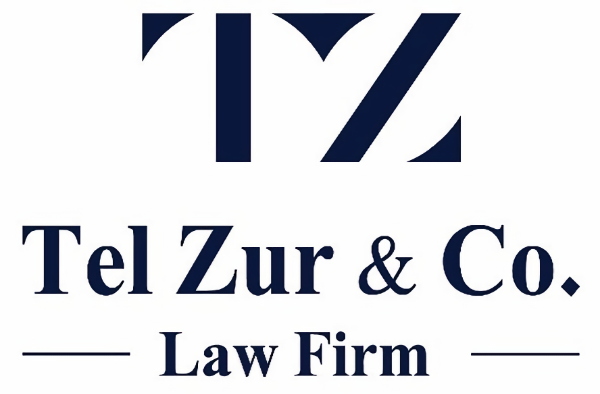The Original Concept of SAFE
As anyone familiar with the high-tech industry knows well, over the last decade the SAFE mechanism (Simple Agreement for Future Equity) has gained popularity and has become one of the main methods for raising capital among technology startups. This mechanism, which despite its name is not ‘simple’ at all, was adopted by many startups, because it enabled raising funds under favorable, flexible conditions and most importantly quickly, compared to other mechanisms available in the market at that time.
The significant advantage of the SAFE mechanism over other alternatives is in postponing the determination date of the company’s valuation to a more advanced stage – when a substantial investment round arrives. This allows the company to avoid the need to determine its value in the early stages.
Therefore, the use of this mechanism is usually done in anticipation of positive scenarios where the company’s value continues to rise consistently over time. Under such conditions, the SAFE benefits both the investors, who can invest in young companies at a relatively early stage without arduous discussions and negotiations regarding valuation, which will determine the portion of the company they will receive in exchange for their investment, and the companies, who use this mechanism to raise capital quickly and easily, without the need for lengthy and complex investment documents.
Barriers and Challenges in Times of Crisis
However, changes in market dynamics, including the global economic crisis, the attempted overhaul of the Israeli legal system, and the challenging security situation in Israel, raise questions about the suitability of the classic SAFE mechanism given the changing circumstances.
During periods of economic depression, stagnation or even decreases in company valuations, the weaknesses and challenges inherent in using the SAFE tool are revealed. In such scenarios, the complexities and uncertainties are greater, making the SAFE mechanism less effective and flexible. When a company’s value decreases (or does not increase significantly), an anomalous and undesirable situation may arise where SAFE agreements remain “open” and, contrary to expectations, are not actually converted into shares. As a result, SAFE investors may find themselves unable to accurately assess the value of their investment in the company (or realize it) or influence its actions as shareholders. Meanwhile, the company may face difficult challenges in managing a complex capitalization table (Cap Table) that must now account for a decline in value, anti-dilution mechanisms for some shareholders, forced conversions of existing SAFEs at a lower valuation (sometimes subject to SAFE holder consent), and, of course, managing internal struggles between existing shareholders and SAFE holders as a result of potential conflicts of interest, as we will see below.
It’s All About Relationships
In addition to the uncertainty, using SAFE in a volatile and unstable market may also create legal barriers and problems in the relationships between investors and companies. When a company’s value decreases, conflicts may arise between the potential interests of the parties to an existing SAFE agreement. The investors may demand improved conditions, while the company will try to maintain its rights and interests, which the SAFE agreement may not adequately address, failing to provide the parties with the necessary certainty. Such situations can catalyze conflicts and legal disputes that damage the long-term investor-shareholder relationships and may lead to lengthy, expensive, and complex legal proceedings.
Alternatives and New Strategies
In light of these challenges, it seems that there is room to re-examine the frequent use of the SAFE mechanism against traditional alternatives and to consider adjustments to classic SAFE agreements to meet changing circumstances and market fluctuations. Indeed, many startups are examining alternatives to SAFE and adapting their capital raising strategies to the changing economic reality. One option is to pursue a full capital financing round earlier, allowing the company to establish a more defined and stable valuation. Another alternative is offering investors more complex, detailed SAFE agreements with additional conditions to protect their rights in the event of drastic changes in the company’s situation, affecting its valuation.
Professional Legal Advice – A Key to Success
When formulating a suitable capital raising strategy, it is important for startups to receive professional legal advice from advisors who specialize in high-tech and venture capital, rather than automatically choosing a popular mechanism that may not be suitable for the current period. Experienced legal advisors can properly evaluate the risks and benefits of each option according to the company’s specific state and needs. They can also help formulate balanced agreements that protect the interests of all parties and reduce the chances of future legal disputes.
Conclusion
In a time of economic uncertainty and a changing market, flexibility and willingness to adapt the strategy are key to success. The economic challenges we face today, both globally and locally, illustrate the need for startups to reassess their capital raising strategies. It is possible that under current conditions, the SAFE mechanism has lost some of its relative advantages. We must look to traditional or innovative alternatives that will facilitate growth even during these complex times.
Adv. Yaniv Bar-Zik is a partner in Tel-Zur & Co. and specializes in representing emerging growth companies, venture capital funds, private equity funds, and early stage investors and entrepreneurs.
This article was published in Calcalist.

